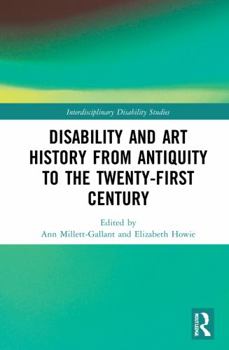Disability and Art History from Antiquity to the Twenty-First Century
Select Format
Select Condition 
Book Overview
This volume analyzes representations of disability in art from antiquity to the twenty-first century, incorporating disability studies scholarship and art historical research and methodology.
This book brings these two strands together to provide a comprehensive overview of the intersections between these two disciplines. Divided into four parts:
Ancient History through the 17th Century: Gods, Dwarfs, and Warriors 17th-Century Spain to the American Civil War: Misfits, Wounded Bodies, and Medical Specimens Modernism, Metaphor and Corporeality Contemporary Art: Crips, Care, and Portraitureand comprised of 16 chapters focusing on Greek sculpture, ancient Chinese art, Early Italian Renaissance art, the Spanish Golden Age, nineteenth century art in France (Manet, Toulouse-Lautrec) and the US, and contemporary works, it contextualizes understandings of disability historically, as well as in terms of medicine, literature, and visual culture.
This book is required reading for scholars and students of disability studies, art history, sociology, medical humanities and media arts.





